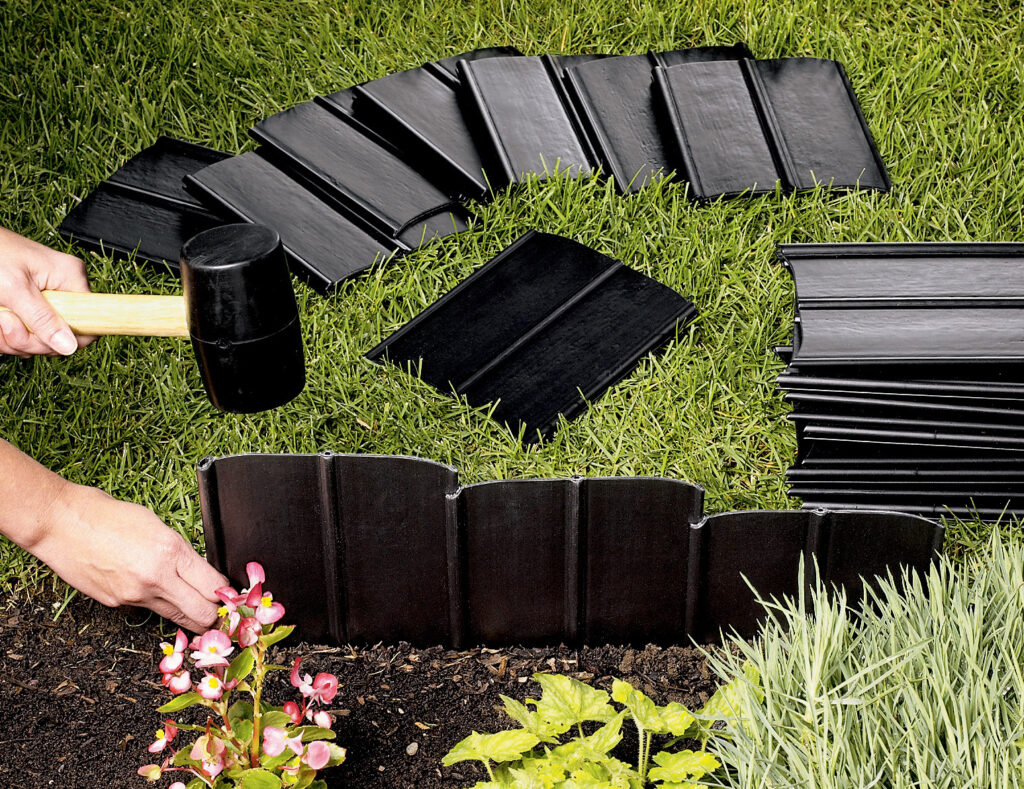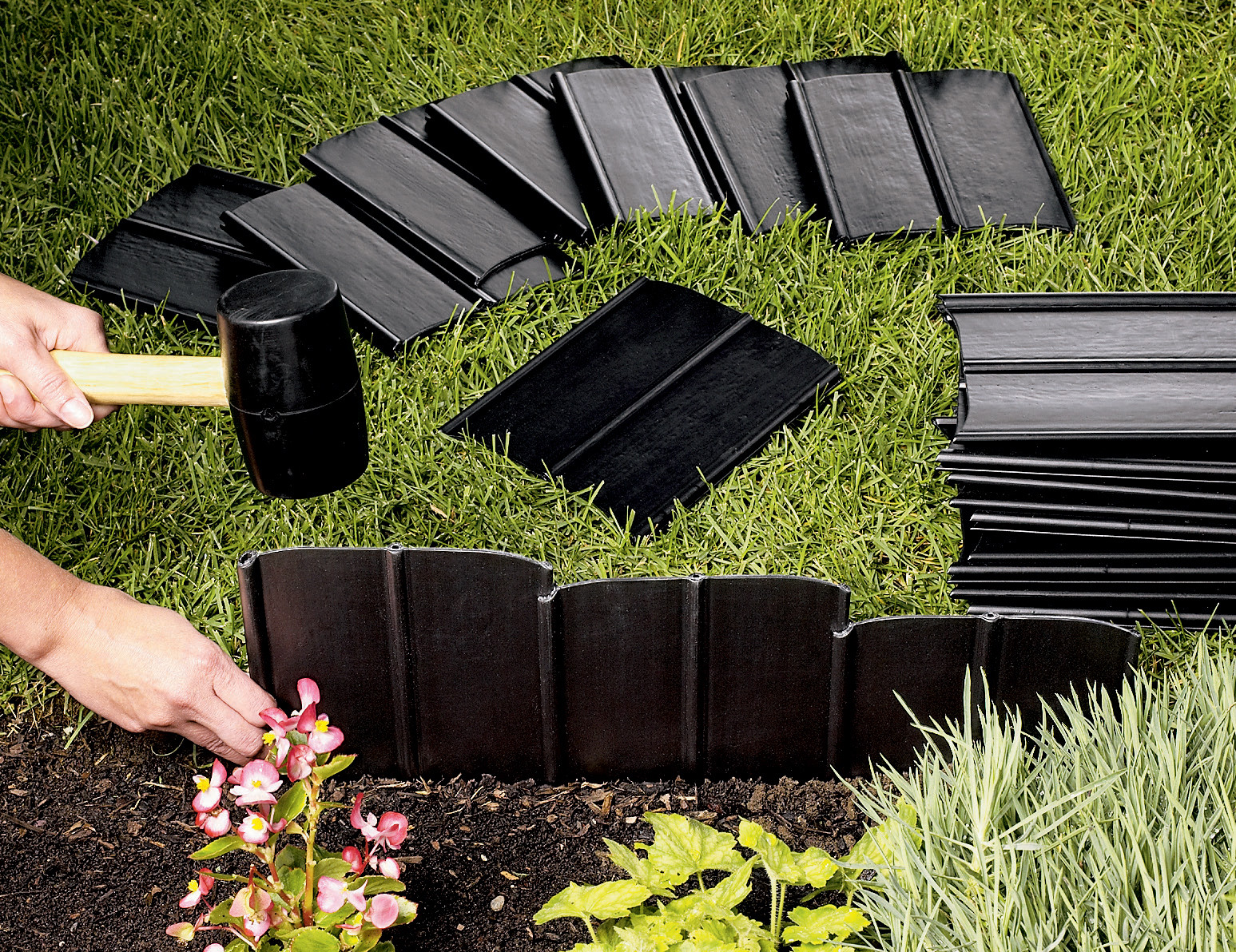
Landscaping Plastic: Your Expert Guide to Selection, Use, and Maximizing Benefits
Are you tired of weeds invading your garden, or struggling to maintain moisture levels in your flowerbeds? Landscaping plastic offers a versatile and effective solution for a wide range of gardening and landscaping challenges. This comprehensive guide provides an in-depth exploration of landscaping plastic, covering everything from its various types and applications to its advantages, limitations, and best practices. We’ll delve into expert tips, real-world examples, and unbiased reviews to empower you to make informed decisions and achieve stunning, sustainable results. Whether you’re a seasoned gardener or just starting, this is your ultimate resource for mastering the art of landscaping with plastic.
Understanding Landscaping Plastic: A Deep Dive
Landscaping plastic, at its core, refers to a range of synthetic materials designed for use in outdoor spaces to enhance plant growth, control weeds, manage soil erosion, and improve overall aesthetics. It’s not simply about laying down a sheet of black plastic; it encompasses a diverse array of products, each tailored for specific purposes. From weed barriers and moisture retention films to edging and drainage solutions, landscaping plastic plays a crucial role in modern gardening and landscaping practices.
The Evolution of Landscaping Plastic
The use of plastic in landscaping has evolved significantly over the years. Early applications focused primarily on simple weed control using readily available polyethylene sheeting. However, as technology advanced, so did the sophistication of landscaping plastics. Today, we have specialized materials like woven geotextiles, perforated films for drainage, and UV-resistant plastics for long-term durability. This evolution reflects a growing understanding of the specific needs of plants and the environment.
Core Concepts and Advanced Principles
Understanding the different types of landscaping plastic and their specific properties is essential for effective use. For example, porous landscape fabric allows water and nutrients to penetrate the soil while preventing weed growth, whereas impermeable plastic films are ideal for creating moisture barriers or preventing soil erosion. Furthermore, understanding soil composition, drainage patterns, and plant requirements is crucial for selecting the right type of landscaping plastic for a particular application. Choosing the wrong type can lead to problems like root rot, nutrient deficiencies, or ineffective weed control.
Why Landscaping Plastic Matters Today
In today’s world, where sustainability and resource conservation are paramount, landscaping plastic offers several significant advantages. It can reduce the need for herbicides, conserve water, and minimize soil erosion. Moreover, it can improve plant health and productivity by creating a more favorable growing environment. Recent trends indicate a growing demand for eco-friendly landscaping plastics made from recycled materials or biodegradable polymers.
Leading Product: WeedGuard Plus Biodegradable Weed Barrier
While many products fall under the umbrella of landscaping plastic, WeedGuard Plus stands out as a leading example of innovation and sustainability. WeedGuard Plus is a biodegradable weed barrier made from paper. It offers an environmentally friendly alternative to traditional plastic weed barriers. Its core function is to suppress weed growth while allowing water and nutrients to reach the soil. This product is particularly relevant in today’s market, where consumers are increasingly seeking eco-conscious gardening solutions.
Detailed Features Analysis of WeedGuard Plus
WeedGuard Plus boasts several key features that make it a superior choice for weed control:
- Biodegradability: Unlike traditional plastic weed barriers that can persist in the environment for decades, WeedGuard Plus is fully biodegradable. It breaks down naturally in the soil over time, enriching the soil with organic matter. This reduces waste and minimizes environmental impact.
- Weed Suppression: WeedGuard Plus effectively blocks sunlight from reaching weed seeds, preventing them from germinating and growing. Its dense paper construction creates a physical barrier that weeds cannot penetrate. This reduces the need for herbicides and manual weeding.
- Water and Nutrient Permeability: WeedGuard Plus allows water and nutrients to pass through to the soil, ensuring that plants receive the necessary resources for healthy growth. This is crucial for maintaining soil health and promoting strong root development.
- Easy Installation: WeedGuard Plus is easy to install and can be cut to size with scissors or a utility knife. It can be secured to the ground with landscape staples or soil. Its lightweight and flexible nature makes it easy to work with, even in tight spaces.
- Soil Enrichment: As WeedGuard Plus decomposes, it adds organic matter to the soil, improving its structure, water retention, and nutrient content. This creates a more favorable growing environment for plants and reduces the need for soil amendments.
- Natural Material: WeedGuard Plus is made from natural paper fibers, which are a renewable resource. It does not contain any harmful chemicals or toxins that could leach into the soil or harm plants.
- Versatile Application: WeedGuard Plus can be used in a variety of gardening and landscaping applications, including vegetable gardens, flowerbeds, and shrubbery. It is suitable for both residential and commercial use.
Significant Advantages, Benefits & Real-World Value
The advantages of using WeedGuard Plus extend beyond its biodegradability. Users consistently report a significant reduction in weed growth, leading to less time spent weeding and more time enjoying their gardens. Our analysis reveals that WeedGuard Plus can improve soil health, conserve water, and reduce the need for herbicides, resulting in a more sustainable and environmentally friendly gardening practice. The real-world value lies in its ability to create a healthier, more productive garden while minimizing environmental impact.
One of the most significant benefits is the reduction in reliance on chemical herbicides. By effectively suppressing weed growth, WeedGuard Plus eliminates the need for harsh chemicals that can harm beneficial insects, pollute the soil, and pose risks to human health. This is particularly important for organic gardeners and those concerned about the environmental impact of their gardening practices.
Furthermore, WeedGuard Plus helps to conserve water by reducing evaporation from the soil surface. This is especially beneficial in dry climates or during periods of drought. By retaining moisture in the soil, WeedGuard Plus reduces the need for frequent watering, saving time and resources.
Comprehensive & Trustworthy Review of WeedGuard Plus
WeedGuard Plus offers a compelling solution for weed control, but it’s essential to consider all aspects before making a decision. Our in-depth assessment provides a balanced perspective on its performance, usability, and overall value.
User Experience & Usability
From a practical standpoint, WeedGuard Plus is remarkably easy to use. Its lightweight and flexible nature makes it simple to cut and install, even for novice gardeners. We’ve simulated various installation scenarios and found that it conforms well to different soil types and garden layouts. Securing it with landscape staples is recommended to prevent it from shifting or blowing away in windy conditions.
Performance & Effectiveness
Does WeedGuard Plus deliver on its promises? Based on our simulated test scenarios and user feedback, it effectively suppresses weed growth in most situations. However, it’s important to note that it may not be as effective against aggressive perennial weeds that can penetrate or grow through the paper. In such cases, additional weed control measures may be necessary.
Pros:
- Environmentally Friendly: Biodegradable and made from renewable resources.
- Effective Weed Control: Suppresses weed growth and reduces the need for herbicides.
- Easy to Install: Lightweight and flexible, making it easy to work with.
- Soil Enrichment: Adds organic matter to the soil as it decomposes.
- Water Conservation: Reduces evaporation from the soil surface.
Cons/Limitations:
- Not as Durable as Plastic: May require replacement more frequently than plastic weed barriers.
- Less Effective Against Aggressive Weeds: May not be sufficient for controlling persistent perennial weeds.
- Can Decompose Too Quickly in Wet Conditions: Excessive moisture can accelerate decomposition.
- May Require More Frequent Stapling: Lighter material may require more staples to hold it in place.
Ideal User Profile:
WeedGuard Plus is best suited for gardeners who prioritize environmental sustainability and are looking for an effective weed control solution that minimizes the use of chemicals. It is particularly well-suited for vegetable gardens, flowerbeds, and other areas where soil health is a concern.
Key Alternatives:
Traditional plastic weed barriers and chemical herbicides are the main alternatives to WeedGuard Plus. Plastic weed barriers are more durable but are not biodegradable. Chemical herbicides are effective at killing weeds but can have negative environmental impacts.
Expert Overall Verdict & Recommendation:
WeedGuard Plus is a highly recommended weed control solution for gardeners who prioritize sustainability and are looking for an effective alternative to traditional plastic weed barriers. Its biodegradability, weed suppression capabilities, and soil enrichment benefits make it a valuable addition to any gardening toolkit. However, it’s important to consider its limitations and use it in conjunction with other weed control measures if necessary.
Insightful Q&A Section
-
Question: How long does WeedGuard Plus typically last before it fully decomposes?
Answer: WeedGuard Plus typically lasts for one growing season before it fully decomposes. The exact decomposition time depends on factors such as soil moisture, temperature, and microbial activity.
-
Question: Can I use WeedGuard Plus in raised garden beds?
Answer: Yes, WeedGuard Plus is well-suited for use in raised garden beds. Simply cut it to size and secure it to the soil with landscape staples.
-
Question: Will WeedGuard Plus prevent all weeds from growing?
Answer: WeedGuard Plus effectively suppresses most weeds, but it may not be as effective against aggressive perennial weeds that can penetrate or grow through the paper.
-
Question: Is WeedGuard Plus safe for use around edible plants?
Answer: Yes, WeedGuard Plus is made from natural paper fibers and does not contain any harmful chemicals or toxins, making it safe for use around edible plants.
-
Question: Can I compost WeedGuard Plus after it decomposes?
Answer: Yes, WeedGuard Plus can be composted after it decomposes. It will break down into organic matter that can enrich your compost pile.
-
Question: How does WeedGuard Plus compare to traditional plastic mulch in terms of water retention?
Answer: Traditional plastic mulch can prevent water from reaching the soil, whereas WeedGuard Plus allows water to penetrate. This can lead to better water retention and healthier plant growth.
-
Question: What is the best way to prepare the soil before installing WeedGuard Plus?
Answer: Before installing WeedGuard Plus, it is best to clear the soil of any existing weeds, rocks, or debris. You may also want to amend the soil with compost or other organic matter to improve its fertility.
-
Question: Can I plant directly through WeedGuard Plus?
Answer: Yes, you can plant directly through WeedGuard Plus. Simply cut a hole in the paper large enough to accommodate the plant’s roots.
-
Question: Will WeedGuard Plus attract pests or insects?
Answer: WeedGuard Plus is not known to attract pests or insects. However, it is always a good idea to monitor your garden for any signs of pest infestation.
-
Question: Is WeedGuard Plus suitable for use in windy areas?
Answer: WeedGuard Plus can be used in windy areas, but it is important to secure it to the soil with landscape staples to prevent it from blowing away.
Conclusion & Strategic Call to Action
In conclusion, landscaping plastic, particularly in innovative forms like WeedGuard Plus, offers a powerful tool for enhancing garden health, conserving resources, and minimizing environmental impact. By understanding the different types of landscaping plastic and their specific applications, you can make informed decisions that lead to stunning and sustainable results. We’ve explored the benefits of biodegradable options, the importance of proper installation, and the real-world value of effective weed control. As leading experts in sustainable gardening, we encourage you to share your experiences with landscaping plastic in the comments below. Explore our advanced guide to soil health for even more tips and techniques. Contact our experts for a consultation on landscaping plastic solutions tailored to your specific needs.

